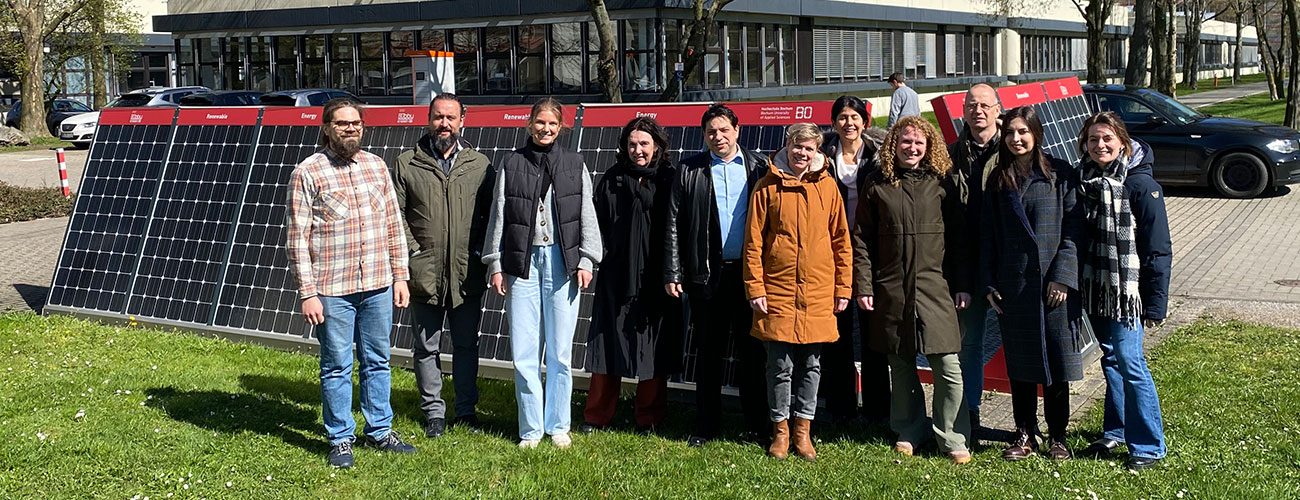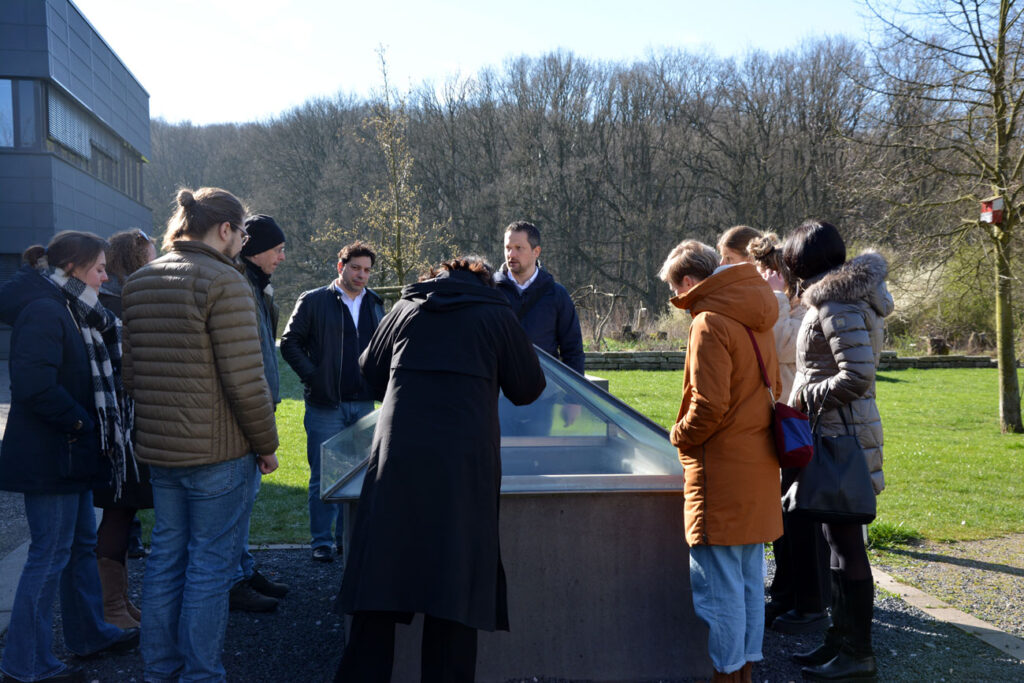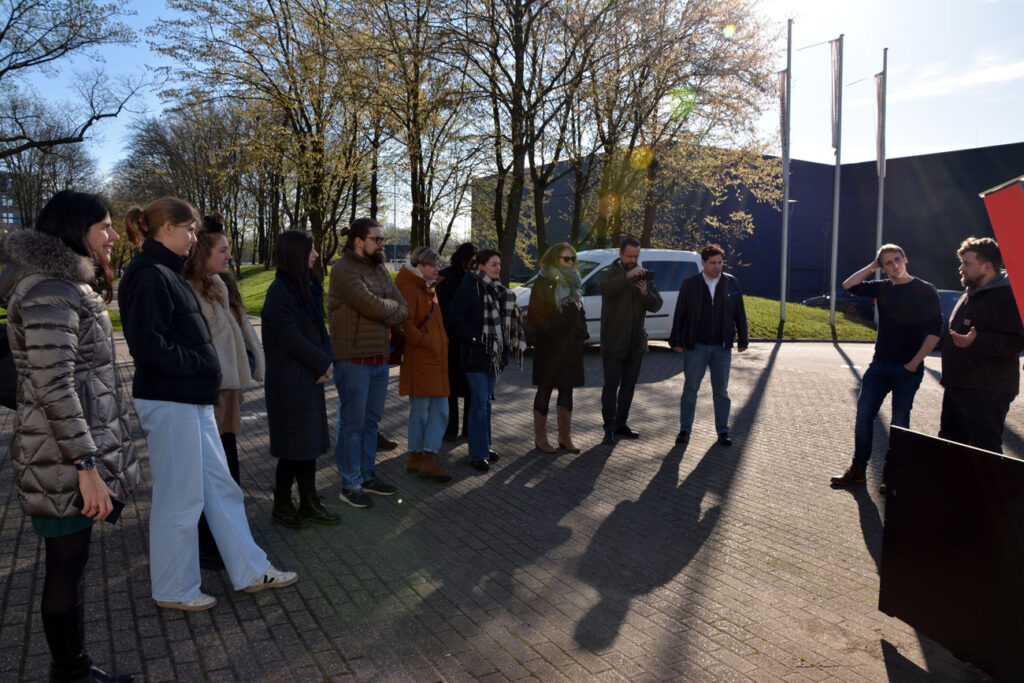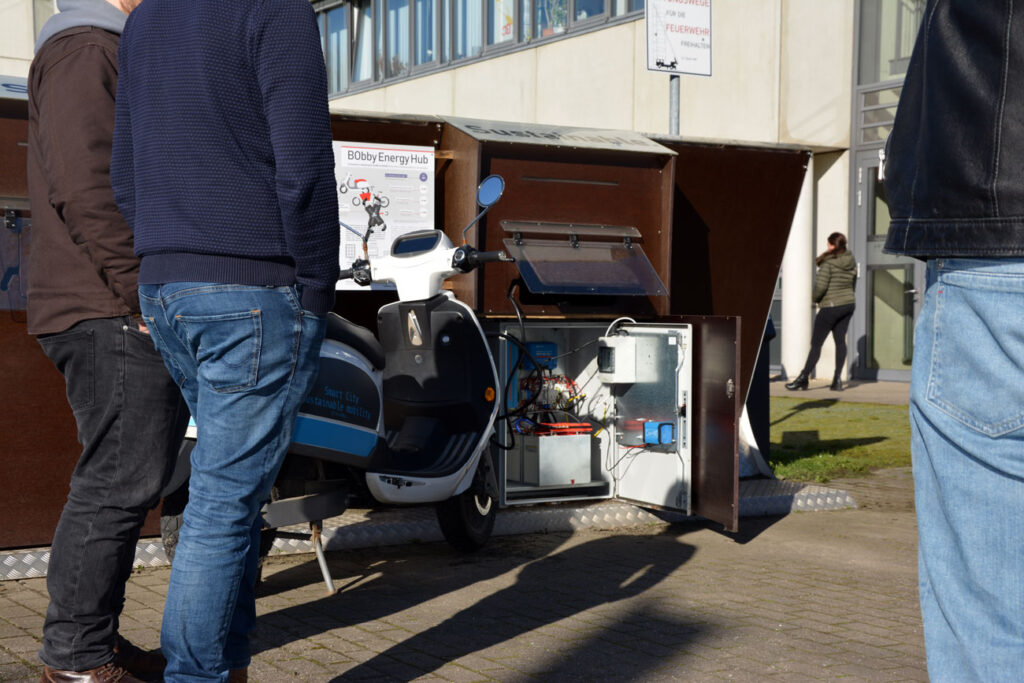Abstract
The SEED Partners transnational meeting took place on April 3-4 at the Bochum University of Applied Sciences in Germany. The meeting began with a formal welcome from BUAS President Mi-Yong Becker, who highlighted the importance of the partnership between BUAS and HU, the lead partner of SEED, via the student exchange programs of those two universities. The morning session included each work package leader’s short presentations on their project’s progress. Later that day, a workshop was held on WP3, led by Evelien Katelaar, which focused on defining COVEs and determining the next steps for measuring their maturity in each region. The next day, the group visited the Sustainable Technologies Laboratory for an excursion on the “BObby Energy Hub” project. Following the excursion, Alicia Altendeitering and Semih Severengiz led a workshop focused on understanding and characterising the good practices of each region. The meeting concluded with a closing session where participants gained insight into the project’s progress, challenges, and future goals.
Unlocking Regional Potential: Using the CoVE Maturity Quick Scan to Empower Innovation
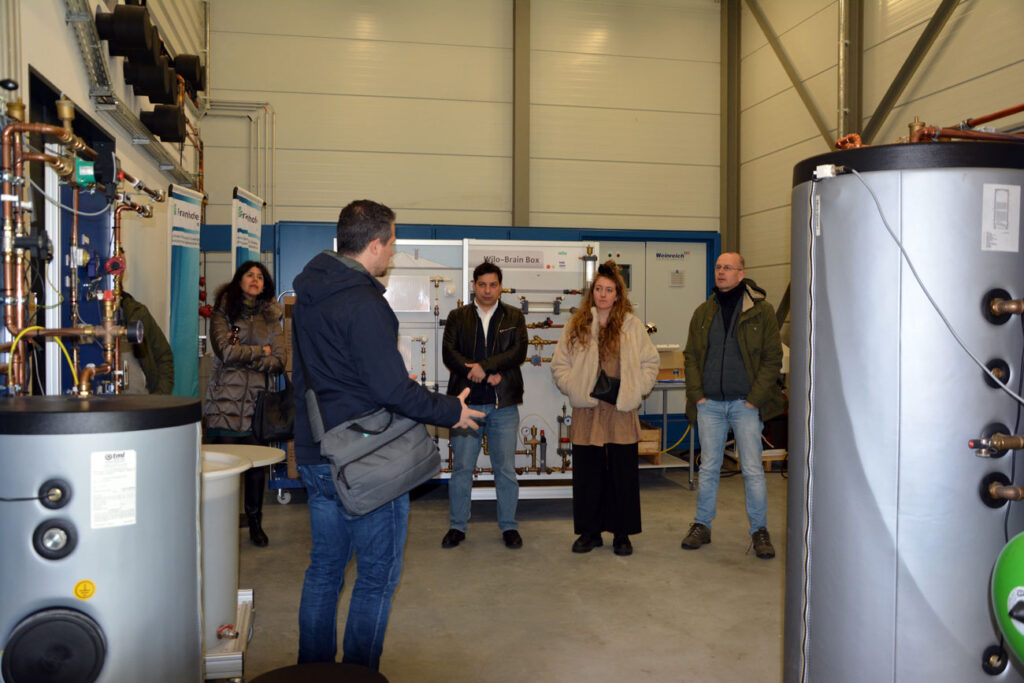
During the SEED Partners transnational meeting at Bochum University of Applied Sciences, a workshop was held on work package 3- Regional Innovation and Skills Ecosystems, led by HU. The workshop focused on using the Quick Scan CoVE Maturity, a tool developed by Evelien Ketelaar (research group Vocational Education), Angelique Ruiter and Lenny van Onselen (research group Co-Design) from the Utrecht University of Applied Sciences. The tool aims to empower regional innovation based on regional needs and establish and extend a regional CoVE in each of the five participating regions. The workshop aimed to prepare regional coordinators to use the “quick scan” by familiarising them with the procedure and the material that is needed in order to be completed. During the workshop, the different steps of the Maturity Quick Scan were reviewed, and the partners shared their insights since some steps have already been completed as a preparatory task for the meeting in Bochum. The materials provided, including stakeholder cards, an adjusted CoVE Maturity Model print, and a reflection canvas to note important insights, were used and discussed to determine their utility.
After that fruitful workshop, each region will use the quick scan in the upcoming month to gain insights into the developmental potential of their CoVE, helping them formulate a strategy and priorities for the upcoming year. The result will be a regional development plan later in the project, contributing to the project’s goals of empowering regional innovation and extending regional CoVEs.
The Partners also had the opportunity to attend a workshop about WP4-Regional Good Practices on Teaching & Learning, Cooperation & Partnership and Governance with two main objectives. The first objective was to understand the good practices of each region, and the second was to find relevant characteristics to decide which good practices might be applicable in which region. Consequently, in the first part of the workshop, the good practices were presented in a concise and comparable way to gain a better understanding of their characteristics and outcomes. In the second part, participants brainstormed to identify possible characteristics to decide which good practice could be adopted in which place. The collected characteristics were accumulated, and participants were divided into two groups to discuss which good practices might be applicable in which region and why, keeping the identified characteristics in mind. Through this discussion, some good practices were identified as easily adaptable to certain regions, while others were still challenging to apply to a new context.
The workshop provided a better understanding of the existing good practices and which ones might be applicable to each region. The characteristics identified during the workshop will be used to find a suitable match for each good practice and each region. Additionally, the workshop led to new knowledge about misunderstandings and knowledge gaps, which can now be addressed to improve the project’s progress. Overall, the workshop for WP4 was productive and fruitful in achieving the work package’s objectives.

